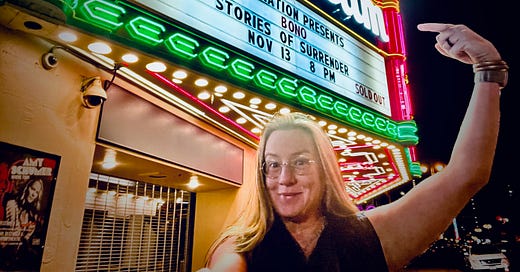Sunday Stories: Memoirs, Light the Corners of My Mind...
On memoirs, memories, destiny, The Long Way Up/Down/Around, Surrender(ing), and how you'll never know if you don't ask

We do not remember days, we remember moments.
—Cesare Pavese
Almost exactly 20 years ago, while working in the newsroom of the Chicago Sun-Times one November afternoon, I answered the phone to hear my best friend Kelley’s voice on the other end.
“U…



